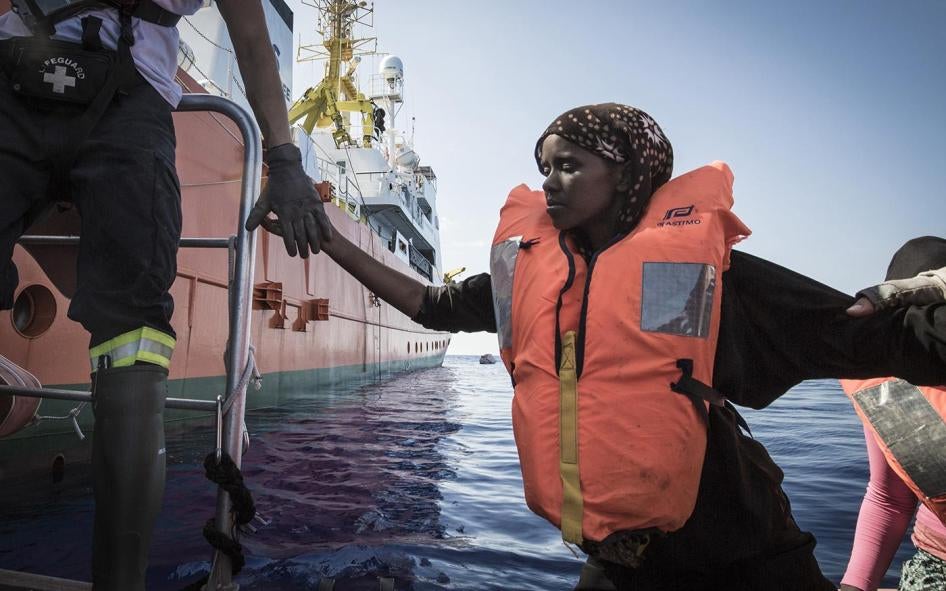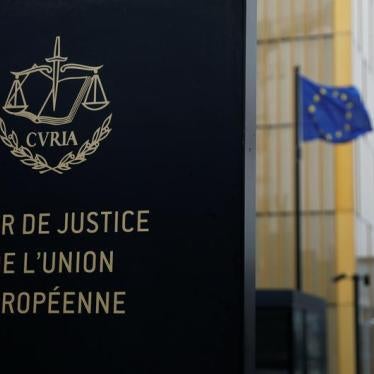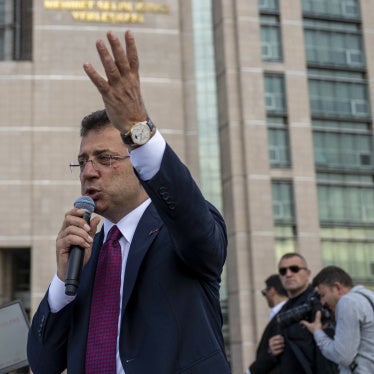(Brussels) – The European Union and its member states were too often willing to set aside human rights in 2017, but there were glimpses of a more principled approach, Human Rights Watch said today in its World Report 2018.
During a year dominated by concerns about the influence of populist extremist parties, Human Rights Watch highlighted developments in 10 EU member states and union-wide developments on migration and asylum, discrimination and intolerance, terrorism and counterterrorism, and EU foreign policy.
“It was clear during 2017 that treating human rights in the European Union as an optional extra won’t defeat the populist extremists or their ideas,” said Benjamin Ward, deputy Europe and Central Asia director at Human Rights Watch. “But the growing consensus among EU governments and bodies around the need to tackle Poland’s assault on human rights and the rule of law shows that an approach based on EU core values can help.”
In the 643-page World Report, its 28th edition, Human Rights Watch reviews human rights practices in more than 90 countries. In his introductory essay, Executive Director Kenneth Roth writes that political leaders willing to stand up for human rights principles showed that it is possible to limit authoritarian populist agendas. When combined with mobilized publics and effective multilateral actors, these leaders demonstrated that the rise of anti-rights governments is not inevitable.
The EU and its member states intensified efforts to prevent arrivals of asylum seekers and irregular migrants, and to shift responsibility for migration control onto countries outside the EU’s borders, notably Libya, in ways that exposed people to human rights abuse.
Despite performing less well than anticipated in some European elections, populist extremist parties exercised an outsized influence over European politics during the year, and entered Germany’s parliament.
Despicable attacks by extremists in Belgium, Finland, France, Spain, Sweden, and the United Kingdom, most claimed by the Islamic State (also known as ISIS), together killed more than 60 people and left hundreds injured. Some of the security measures introduced or strengthened during the year compromised human rights, including a new EU directive to combat terrorism that lacks adequate safeguards to protect freedom of expression, and problematic measures in individual EU countries.
Racist, xenophobic, and anti-Muslim sentiment and violence persisted across the EU. Muslims experienced widespread hostility and intolerance. Anti-Semitism, including hate crimes, remained a serious concern.
The EU’s willingness to advance human rights through its foreign policy agenda was often undermined by other interests, including national security, access to natural resources, migration control, and lack of leadership on human rights by the EU’s External Action Service.
Country-specific developments in the EU highlighted by Human Rights Watch include: France’s decision to incorporate some abusive state of emergency powers into regular law; Hungary’s curbs on human rights groups and independent universities; Poland’s undermining of checks and balances on the executive; the ongoing crisis for asylum seekers on the Greek islands; and the failure of the UK government to guarantee rights protection during the Brexit process.









